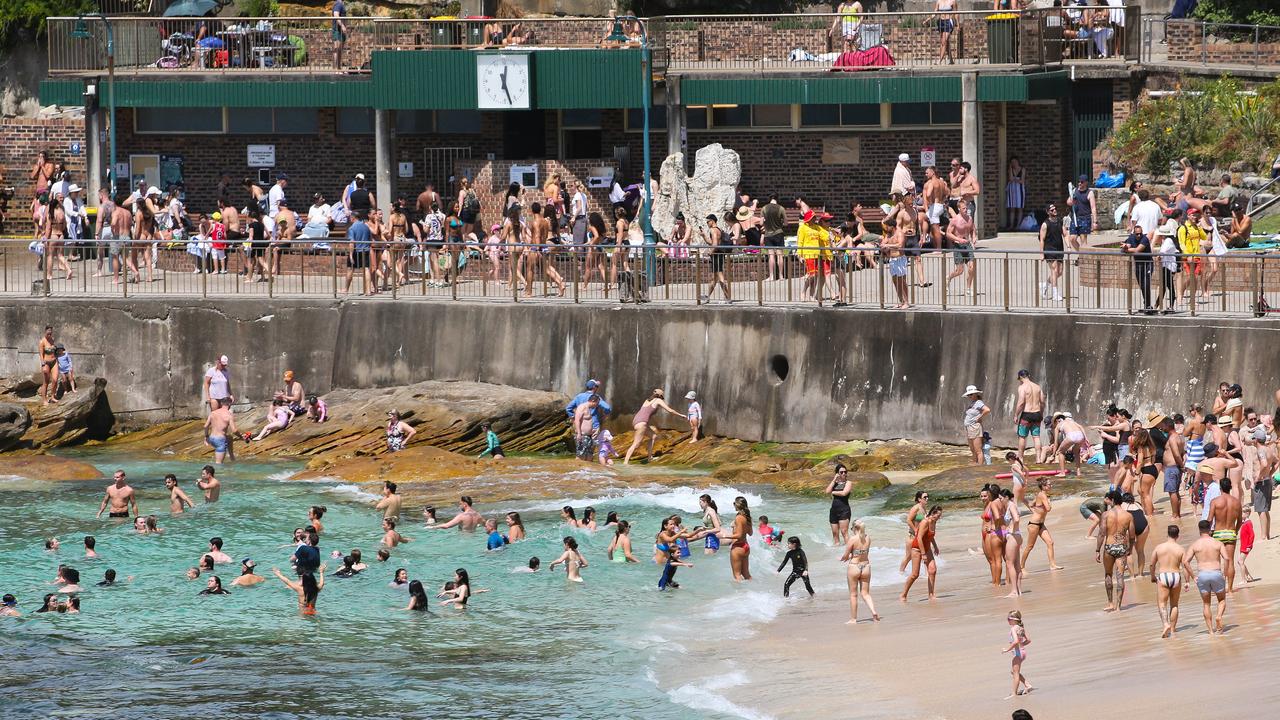Volcano erupts in Indonesia, alert level raised to highest: ‘Ejection of rocks, hot cloud discharges’
A tsunami alert has been issued after a volcano erupted several times in Indonesia, with more than 11,000 people forced to evacuate.
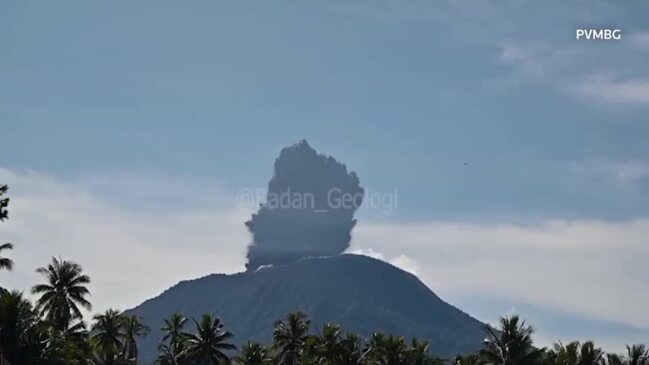
A tsunami alert has been issued for one of Australia’s closest neighbours, where a major Indonesian volcano had erupted several times in 24 hours.
Mount Ruang, a stratovolcano in Indonesia’s remote reaches, has unleashed a fury of eruptions, prompting authorities to issue a tsunami alert and evacuate over 11,000 residents to flee their homes.
Some photos released by authorities show apocalyptic scenes as ash clouds intertwine with lightning.
The volcano’s relentless activity, with five major eruptions in 24 hours, has sparked widespread concern and necessitated swift action from Indonesia’s Center for Volcanology and Geological Disaster Mitigation.
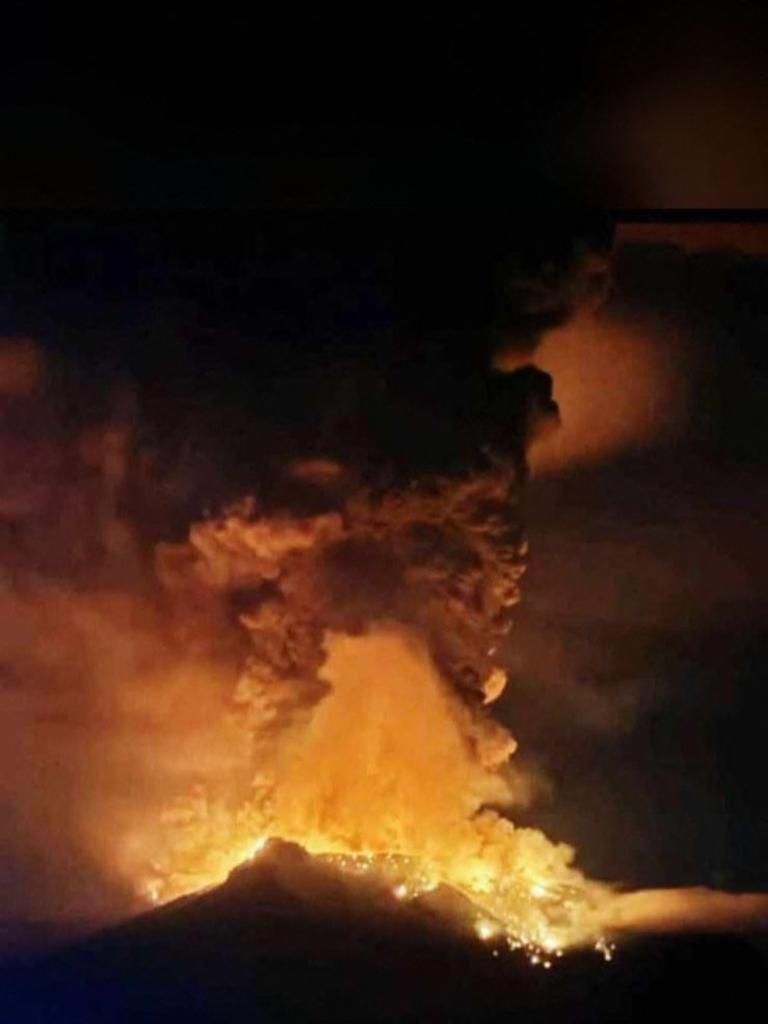
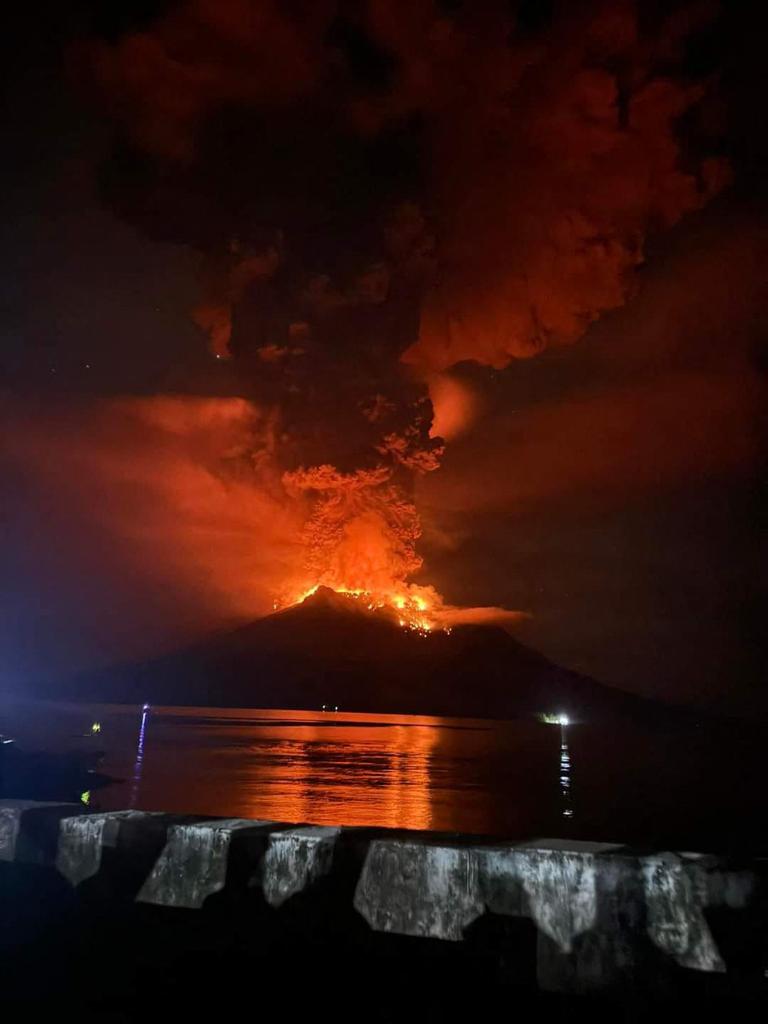
With ash clouds billowing thousands of metres into the sky, the repercussions of Mount Ruang’s eruptions are felt far and wide, despite its distance of 1640 kilometres from the bustling tourist hub of Bali.
The initial eruption on Tuesday night, followed by four subsequent eruptions throughout Wednesday, has thrust the North Sulawesi Province region into a state of heightened alert.
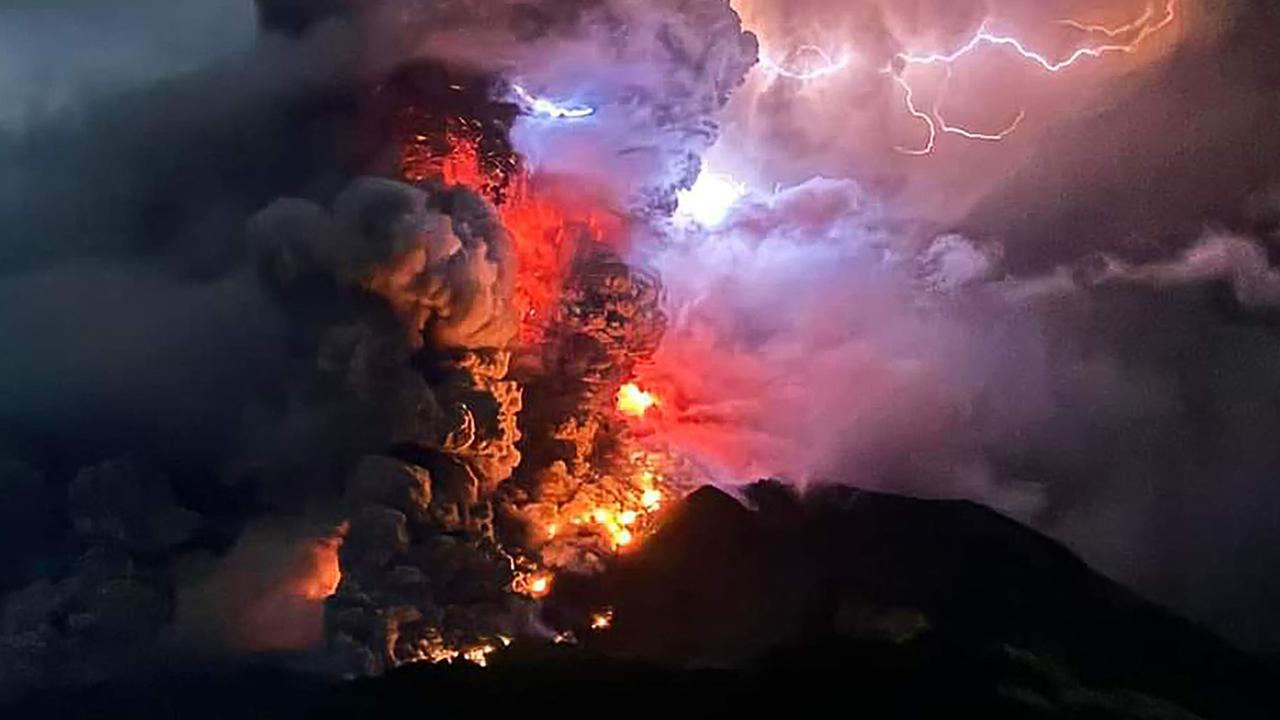
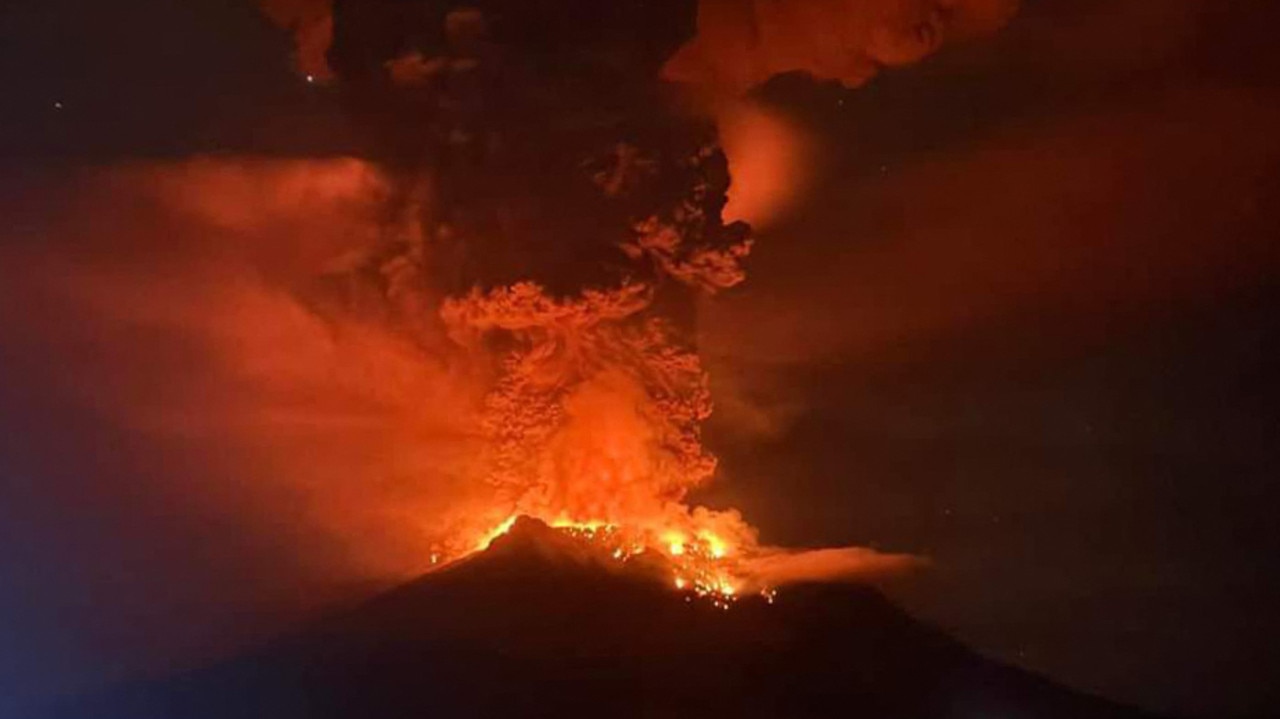
“In light of the escalating volcanic activity observed visually and instrumentally, Mount Ruang’s alert level has been elevated from Level 3 to Level 4,” Hendra Gunawan, the director of Indonesia’s volcanology agency warned on Wednesday night.
The escalation prompted authorities to expand the exclusion zone around the crater from four to six kilometres, a precautionary measure aimed at safeguarding residents from potential harm.
Antara, the state news agency, reported the evacuation of over 800 individuals from two villages on Ruang Island to the safer confines of Tagulandang Island, situated more than a hundred kilometres north of the provincial capital, Manado.
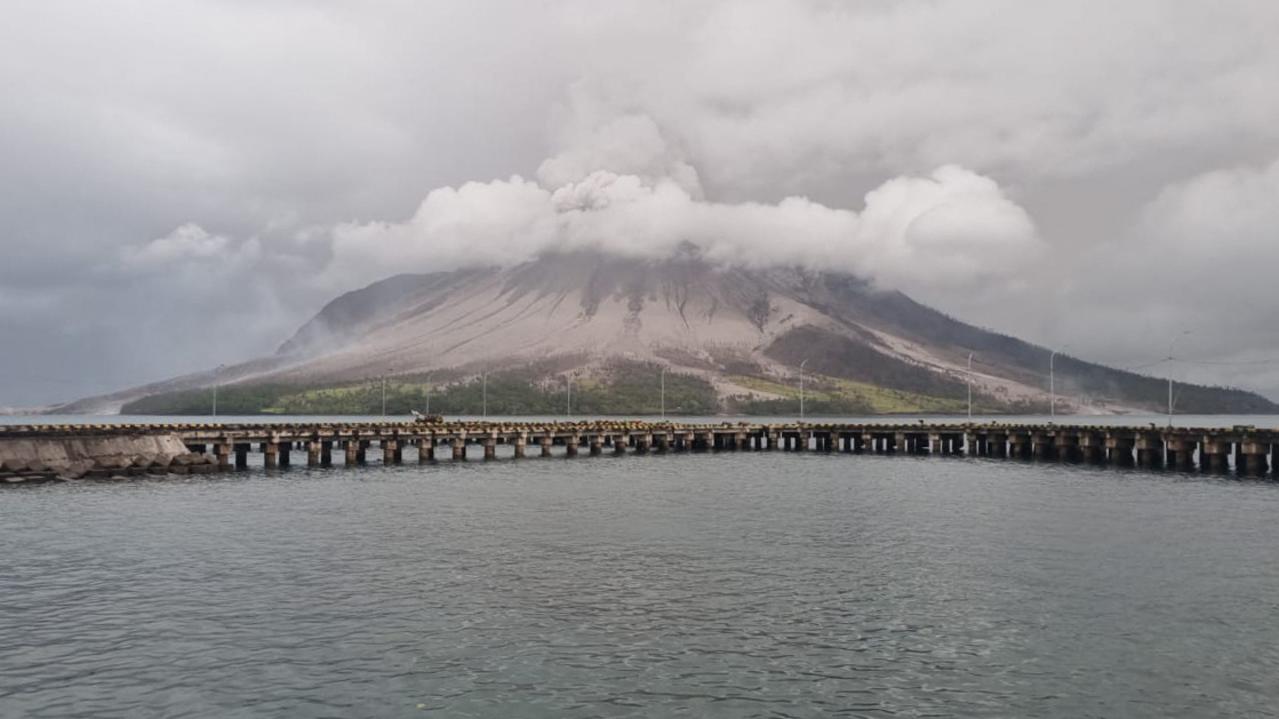
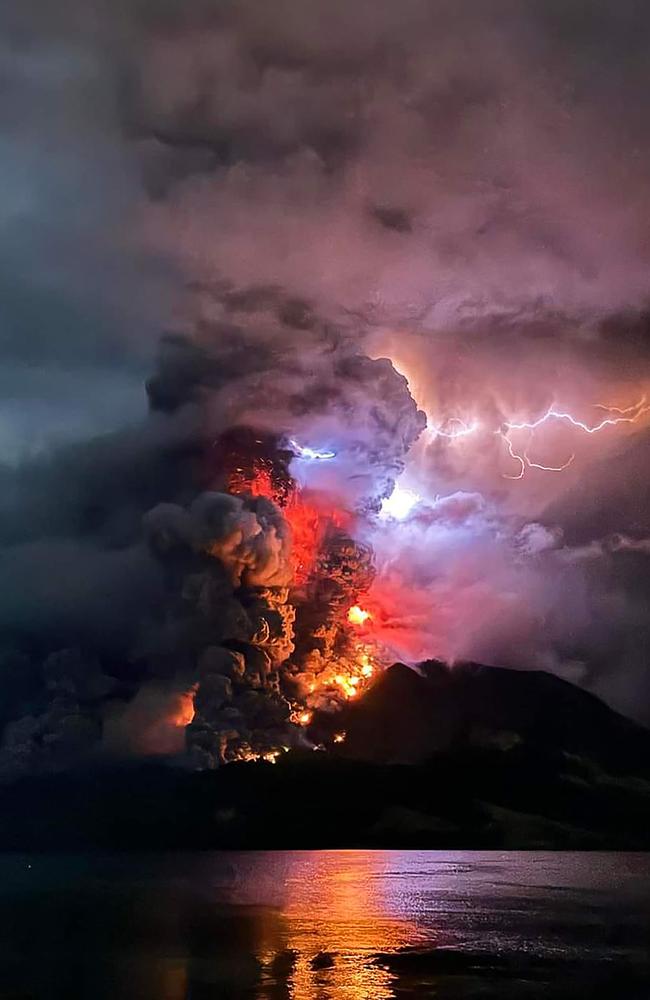
“Residents of Tagulandang must evacuate beyond the six-kilometer radius by Wednesday evening,” Gunawan said.
“Be on alert for the potential ejection of rocks, hot cloud discharges and tsunami caused by the collapse of the volcano’s body into the sea.”
The eruptions have propelled ash columns up to two and a half kilometres high and have intensified following a series of earthquakes in recent weeks, as noted by Muhammad Wafid, the head of the geological agency. The recent increase in volcanic activity highlights Indonesia’s ongoing risk of earthquakes and volcanic eruptions.
The archipelago nation is located in the Pacific “Ring of Fire,” a region stretching from Japan through Southeast Asia and across the Pacific basin, known for its frequent geological disturbances.
– With AFP


